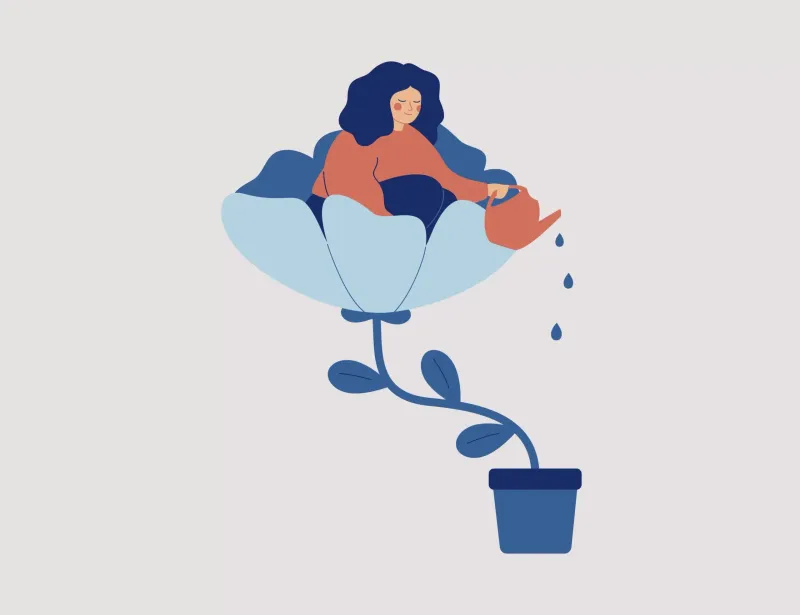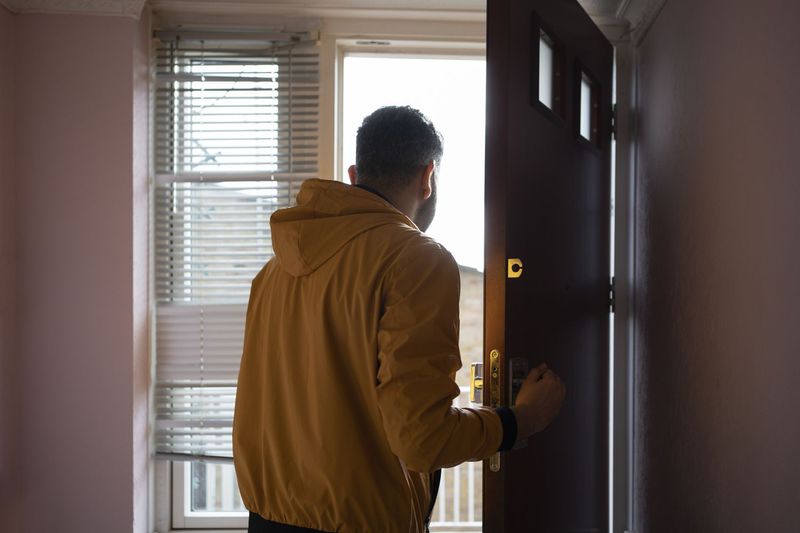15 Warning Signs Of Burnout And Simple Ways To Recover

Often, we push ourselves to the brink, normalizing exhaustion until it feels like just another part of life. But burnout doesn’t announce itself with fanfare. It’s stealthy, creeping in through the cracks of our demanding schedules and high expectations.
Before we know it, we’re living in a fog, feeling disconnected and overwhelmed. Recognizing the signs early can make all the difference.
Let’s explore how to spot these warning signs and discover simple, real-life ways to reclaim our energy and joy.
1. You feel tired no matter how much you sleep

Waking up should feel like a fresh start, but if you’re constantly dragging yourself out of bed, fatigue might be more than just physical. It creeps in, leaving you feeling like you’re running on empty no matter how many hours you log in bed. Your body is present, but your mind feels miles away. The world seems muted, and your energy feels like it’s on a permanent vacation.
To combat this, create a sleep sanctuary. Turn your bedroom into a haven where relaxation is the star. Dim the lights, silence the gadgets, and let your senses unwind. This isn’t a silver bullet, but it’s a step towards reclaiming your rest. Eventually, your body may start to recognize bedtime as a true escape, not just a pause button on exhaustion.
2. Small tasks feel like huge mountains

Ever looked at a sink full of dishes and felt like you were staring at Mount Everest? Suddenly, the simplest chores morph into monumental challenges. It’s not the tasks themselves but the weight of them that feels unbearable. The world presses down, and each step feels like wading through quicksand.
Try breaking down tasks into bite-sized pieces. Write a list, but make it playful. Turn ‘do the dishes’ into ‘a splashy adventure in cleanliness.’ Check off each micro-task, and give yourself a pat on the back. It’s about reclaiming a sense of accomplishment, one tiny victory at a time. Slowly, the mountains will shrink back into the molehills they once were.
3. You keep snapping at people for no real reason

Even the gentlest souls can find themselves snapping unexpectedly. It’s not about who or what’s in front of you; it’s the pressure from within. The frustration bubbles up, and suddenly, your reactions feel out of character. This isn’t who you want to be, but it’s the person burnout is shaping.
Pause and breathe. Create a mini ‘time-out’ zone where you can retreat when tensions rise. It might be a chair by the window or a spot in the garden. Just a few moments of solitude can recalibrate your emotions, allowing you to respond rather than react. You’re not trying to escape; you’re giving yourself space to return to your true self.
4. Nothing excites you anymore—even fun stuff

Remember when weekends were for adventure? Now, even the idea of doing something enjoyable feels like another item on the to-do list. It’s as if the color has drained from your world. Once-thrilling activities now lie flat, devoid of appeal.
To reignite your zest, start small. Engage in a forgotten hobby, even if it’s just for ten minutes. Don’t force joy; instead, let curiosity lead the way. A spark here and there can slowly fan the flames of excitement once more. Over time, you might find what used to bring you joy inviting you back into its warm embrace.
5. You zone out in the middle of conversations

Mid-chat, your mind drifts away. Words wash over you like waves, but none seem to stick. It’s not that you’re uninterested; it’s that your mental bandwidth is stretched too thin. Conversations feel like a radio playing just out of tune.
To bring yourself back, practice active listening. Focus on the speaker’s eyes or their hands as they talk. It anchors you in the moment, making the conversation more tangible. It’s a subtle shift, but over time, it helps tether your wandering mind back to the present, enriching your interactions and grounding you in the here and now.
6. You procrastinate because you just can’t care

Procrastination isn’t just about laziness; sometimes, it’s a silent protest against feeling overwhelmed. The tasks pile up, but your ability to care about them slips away. It’s an emotional inertia, and you’re stuck in its grip.
Combat this by setting micro-deadlines. Make each task a race against the clock, but in a fun, low-stakes way. Set a timer for ten minutes and see how much you can tackle. It’s not about perfection but progress. As you start to conquer these small battles, the larger war against indifference becomes winnable.
7. Every day feels exactly the same

When days blend into one another, life can feel like an endless loop. Even the most vibrant experiences can seem dulled by repetition. It’s like living in a world painted in shades of grey, where each day is a carbon copy of the last.
Break the cycle with a change in routine, however small. Take a different route to work, try a new recipe, or switch up your coffee order. These tweaks are small but potent, injecting novelty into the mundane. With time, they can create ripples of change, reminding you that life, even in its routine, is full of surprises.
8. You’ve stopped taking care of yourself

Personal care might seem trivial when weighed against life’s other demands, but when you neglect it, it’s a sign that something deeper is amiss. It’s more than just skipping showers or eating takeout; it’s a reflection of how you value yourself.
Reintroduce self-care gently. Start with something simple, like a favorite meal or a long bath. These small acts of kindness towards yourself can be transformative, reminding you of your worth. They’re not just about feeling good but about reinstating a sense of dignity and self-respect.
9. You avoid messages or calls

Phones, once a symbol of connection, now feel like shackles. Each ring or alert becomes a reminder of obligations and expectations. It’s not the person on the other end; it’s the pressure of interaction that feels unbearable.
Set boundaries. Designate times for communication and times for silence. Let loved ones know when you’re available and when you need solitude. This isn’t about withdrawing but about creating a balance that nourishes rather than drains. Over time, you might find joy in rekindling connections rather than avoiding them.
10. You rely on caffeine to survive the day

Coffee is a morning ritual, but when it becomes a lifeline, it’s time to reassess. Each cup is a fleeting burst of energy, followed by a crash. The cycle continues, and you’re left feeling more exhausted than before.
Consider alternatives. Herbal teas or short walks can offer a rejuvenating break without the jittery side effects. It’s about finding new ways to revitalize that don’t leave you dependent on a caffeine fix. Over time, these healthier habits can help restore your natural energy levels, allowing you to thrive without the crutch of constant caffeine.
11. You feel emotionally numb more often than not

Emotional numbness is like living in a fog. It’s not that you don’t care; it’s that you can’t feel. The highs, the lows, and everything in between become distant, as if viewed through a frosted window.
Reconnect with your emotions through journaling. Write freely, without judgment or expectation. Let words flow as they come, capturing thoughts and feelings you might not even be aware of. It’s a gentle way to break through the numbness, allowing you to touch base with your inner world and rediscover the vibrant spectrum of emotions that make life rich.
12. You dread work—even on your days off

The clock ticks towards Monday, and a sense of dread sets in. It’s not just the workload; it’s the feeling of being trapped in a cycle that leaves you uninspired. Even on days off, work looms large, casting a shadow over your free time.
Reframe your perspective by setting boundaries. Dedicate certain hours to work and others to personal time, and respect them. Turn off work notifications when off the clock. Over time, this separation can help alleviate the sense of perpetual work, allowing you to enjoy your downtime without the specter of work looming over you.
13. You feel guilty for resting

Rest should be restorative, but for many, it feels like a guilty pleasure. There’s always something more to do, and taking a break seems self-indulgent. The irony is that without rest, productivity and creativity suffer.
Shift your mindset by scheduling downtime. Treat rest as an essential appointment with yourself. Use this time intentionally, whether it’s reading a book, meditating, or simply doing nothing. With practice, you’ll start to see rest not as a luxury but as a necessity, crucial for your well-being and efficiency.
14. You cry randomly and can’t explain why

Tears come unbidden, sometimes in the most inconvenient places. It’s not sadness or joy, but an overwhelming tide of emotion that defies explanation. It’s a release your body needs, even if your mind struggles with it.
Accept these moments as part of your healing process. Find a quiet space where you can let your emotions flow without judgment. It might be in the shower or a secluded park bench. This acceptance allows you to process feelings, making room for clarity and calm. Over time, these emotional releases become less frequent as you address the root causes of your stress.
15. You fantasize about disappearing just to get a break

Daydreams of escape drift into your mind, a fantasy of leaving everything behind for a moment’s peace. It’s not about running away but finding space where obligations don’t exist, where you can breathe freely.
Plan micro-escapes. These are small, intentional breaks from your routine, like a solitary walk in a park or a quiet afternoon with a book. They offer a taste of that freedom without the upheaval. Over time, these moments of respite help rebuild your resilience, reminding you that you don’t need to disappear to find peace.
